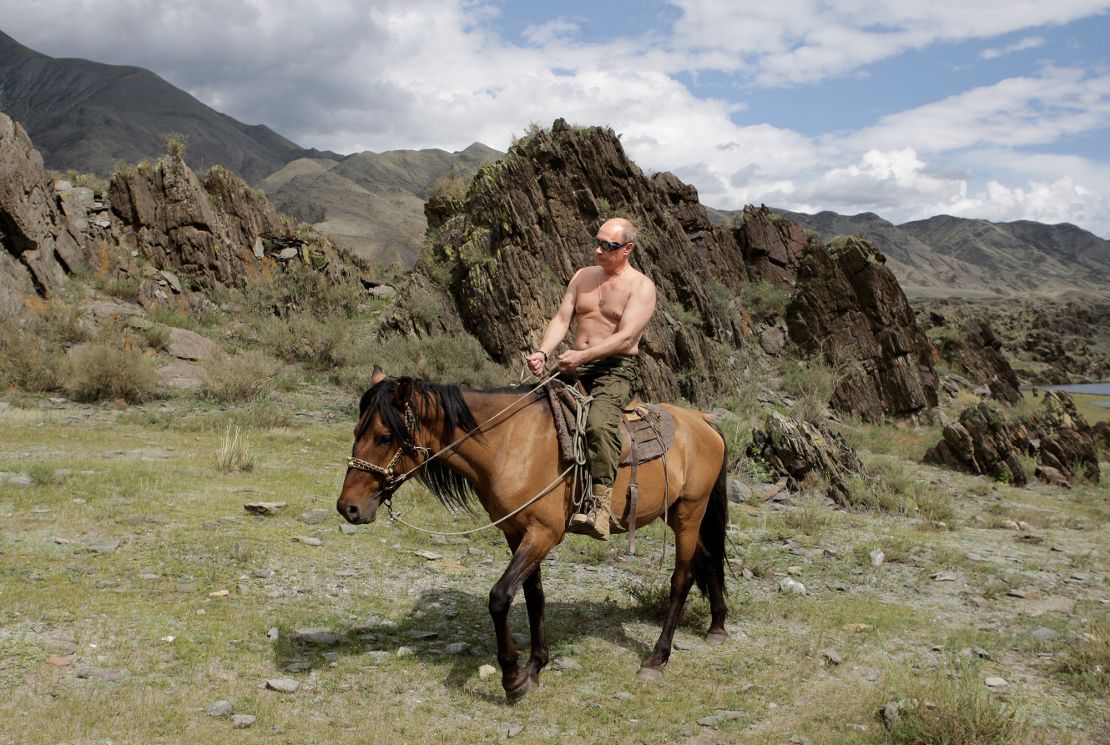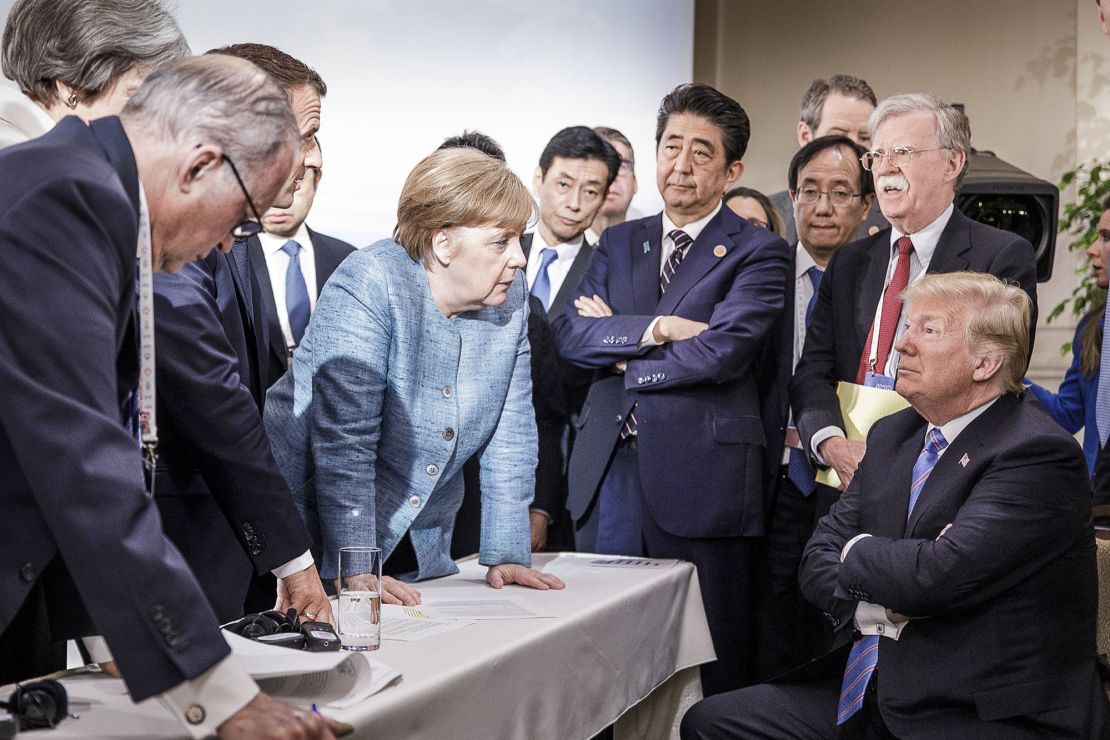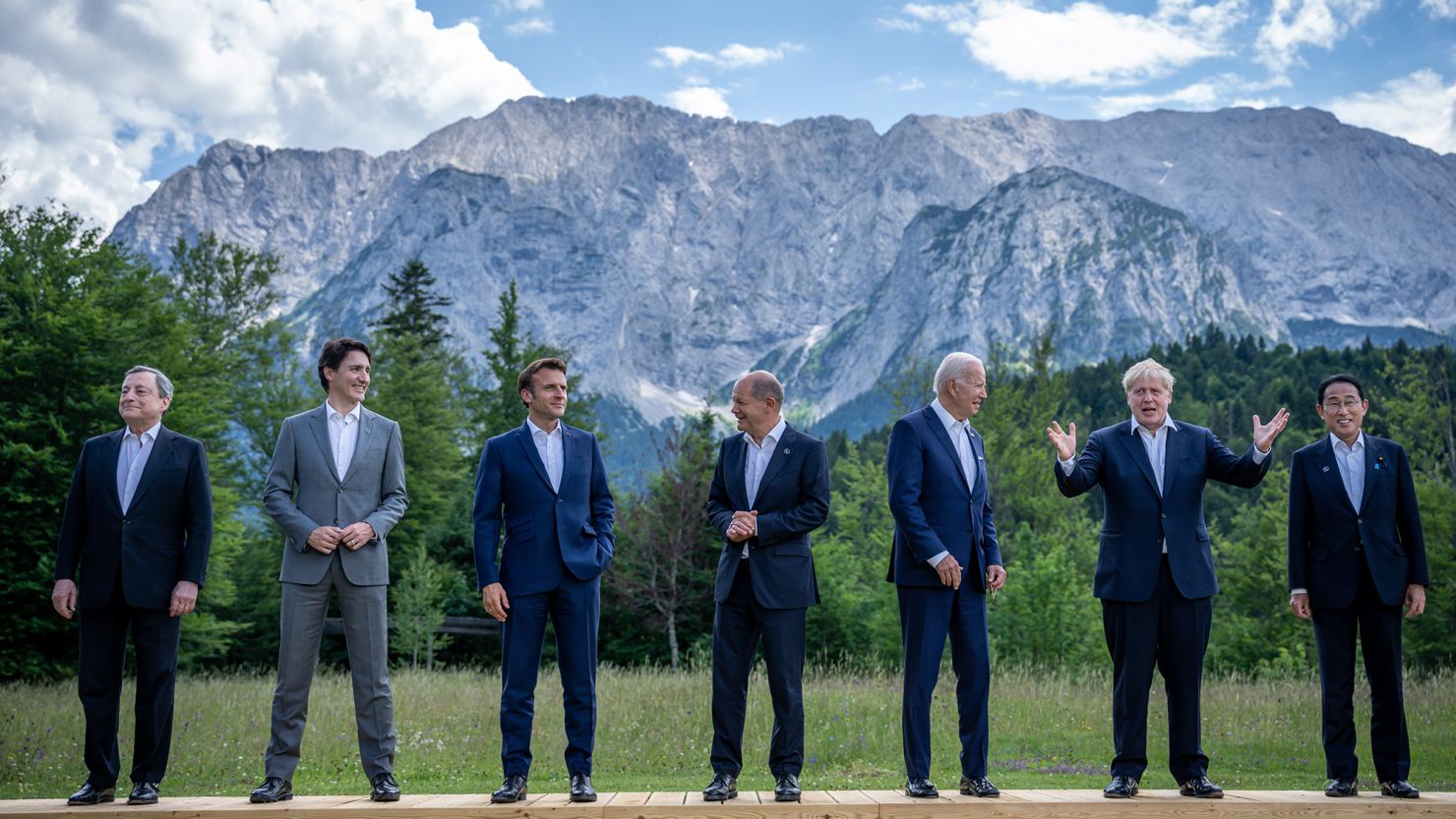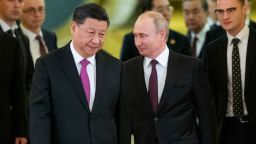Editor’s Note: Frida Ghitis, (@fridaghitis) a former CNN producer and correspondent, is a world affairs columnist. She is a weekly opinion contributor to CNN, a contributing columnist to The Washington Post and a columnist for World Politics Review. The views expressed in this commentary are her own. View more opinion on CNN.
The photograph tells the story. There they stand, a small handful of the world’s most powerful people, smiling in their dark suits: every one of them a man. For the first time in 16 years, the G7 summit, the gathering of leaders of some of the planet’s seven wealthiest democracies, doesn’t have a single nationally elected woman among the principals.

The moment is particularly jarring because it comes as women in the United States have suffered one of the most grievous reversals to their freedom in recent memory. The G7 boys gathered while the streets of the US were seething with rage, teeming with women and their allies incensed, infuriated after the Supreme Court rescinded Roe v. Wade, the ruling that guaranteed women the freedom to choose what they can do with their bodies – their lives – when they become pregnant; one of most fundamental of women’s rights. One of the most basic of human rights.
From the formal G7 gatherings high in the Bavarian mountains to the judicial rulings down in Washington, it almost looks as if the Earth is spinning backward.
Does the arc of the moral universe, as has become almost cliché, really bend toward justice? Does history move toward more freedom, more equality, more democracy, more peace? One could be forgiven for thinking those ideas are the product of naively optimistic minds. But is that the right conclusion? Back to that in a moment.
Up in Bavaria, it might have been sheer coincidence, but the banter was high in macho content. Apparently discussing whether to take off their jackets for a group photo, UK Prime Minister Boris Johnson asked, “Jackets on? Jackets off? Shall we take our clothes off?” All, of course, for geostrategic purposes. “We have to show that we’re tougher than Putin,” added Johnson. Canada’s Justin Trudeau jokingly suggested doing the Putinesque “bare-chested horseback riding display.” Johnson liked the idea, “There you go! We’ve got to show them our pecs!”

Seated around the table with the seven leaders was Ursula von der Leyen, President of the European Commission and a “non-enumerated member” of the G7 club; the only woman. She gamely muttered, “Horseback riding is the best.” Was she cringing inside?
(The EU, not a country but a “supranational organization,” has a special place in the G7).
When it comes to G7 summits, one of the most iconic images came in 2018. You remember then-German Chancellor Angela Merkel standing, her arms pushed down against the table, staring down, confronting former President Donald Trump, who was seated below her, looking up at her, arms crossed.
That was the summit where Trump undermined the alliance, arrived late and left early, refusing to sign the joint communique and unsuccessfully pressuring the group to readmit Russia and President Vladimir Putin, who had been expelled for invading Ukraine’s Crimean Peninsula in 2014.

The last time the G7 had no women, in 2005, it was actually the G8, with Russia on board. A photograph from that summit, in Scotland, shows Putin in his tuxedo along with the others leaders and Queen Elizabeth II, their ceremonial host.
For a decade and a half, Merkel was a key player in the G7, always the only woman except for the two years when the UK’s Theresa May joined her. The reality is that the grouping, like most powerful institutions around the world, has been overwhelmingly male all along.
Every once in a while, it looked like a trend might be starting. Merkel joined in 2006, May in 2018, and for a time it seemed the US might get a woman president. Now we’re back to 100 % of the G7 national members led by men.
There are many reasons why the struggle for women to have a seat at the table – many seats – is so difficult. Decisions by a US Supreme Court whose members have all been chosen by male presidents and confirmed by male-dominated Senates are illustrative. (Though the most recent addition to the court is a woman.) After the Court overturned Roe, the United Nations women’s agency warned, “The ability of women to control what happens to their bodies is also associated with the other roles women are able to play in society, whether as a member of the family, the workforce, or government.”
Centuries of imbalance cannot be easily reversed, as is now excruciatingly obvious.
Our view of history, however, is limited. And history is long.
The battle is tough, frustrating, and it includes crushing – temporary – defeats. But the story does not end there. And the reverses, significant as they are, are not happening everywhere.
A look beyond the front seat at the G7 reveals something interesting. Of the seven countries, a majority – France, Canada, Germany and the UK – have women foreign ministers. The US has reverted to having men at the State Department after Madeline Albright, Condoleezza Rice and Hillary Clinton. But around the world, the battle for women shows that what’s happening in the US despite the display at the G7, looks more like an anomaly than a trend.
In fact, worldwide condemnation of the US abortion decision extended to G7 leaders. French President Emmanuel Macron tweeted his support for American women “whose liberties are being undermined” by the Court, as lawmakers in his party proposed securing abortion rights in the French constitution. Canada’s Trudeau called the ruling, “horrific,” and Johnson branded it “a big step backwards.”
The US is in a tiny minority in adding restrictions to abortion rights. Dozens of countries have rewritten their laws in recent years, almost all of them have made reproductive choices more easily available to women. That’s true even in devoutly Catholic Latin America and Ireland. In Israel, in reaction to the shock from the US, the government eased access to abortion, which the health minister described as setting back women’s rights by “100 years.”
A dear friend, a highly successful woman, told me a couple of days ago that without abortion rights, “I would be living in a trailer.” The stakes are simply too high to allow the usurpation of rights to stand.
Eventually – I don’t know when – the US WILL restore the nationwide right to abortion. History doesn’t move in a straight line but it ultimately does move forward. Freedoms are gained and they are lost. Democracies moves forward and sometimes they take ugly detours. Sometimes, catastrophe strikes in places that looked promising. That’s one of the frightening lessons of history.
Another lesson of history is that positive change doesn’t come without a relentless effort by people committed to doing the work it requires. The G7 picture will include women national leaders in the not-too-distant future. And in the US, women will regain the rights now being taken away from them.

